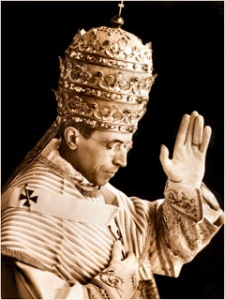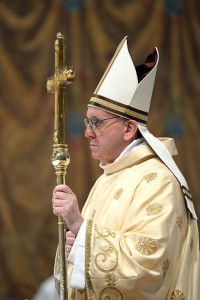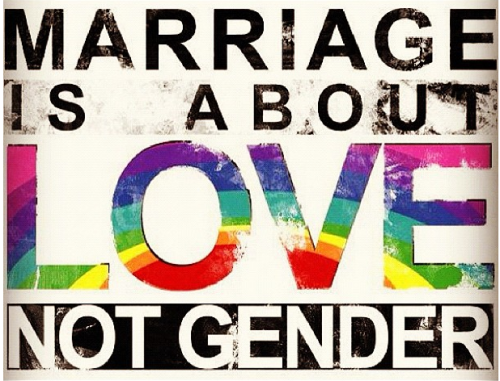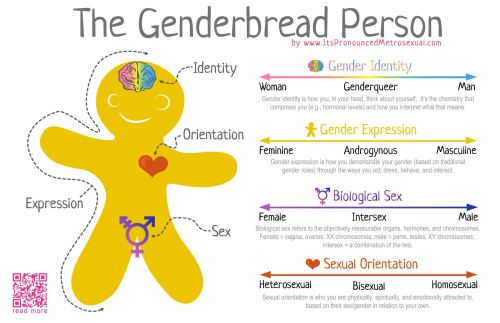http://www.theage.com.au/victoria/church-dumps-rebel-priest-20130920-2u5jp.html
This article talks about a an ex-priest. The article is non-chronological, so I’ll discuss the issue in chronological order and some of the important heresy related ideas.
It appears that the priest was laicised because he believed it is possible for same sex couples to engage in marriage and that it is possible for women to be priests. Both of these misunderstand the nature of male and female, which is one of the major errors of our day. The core of both heresies held by this ex-Catholic is that male and female are interchangeable, the feminine is no different from the masculine. Hence male and female aren’t necessary categories for understanding the Sacraments of Marriage or Holy Orders.

Postgenderism as expressed in the TV show Vexed.
In the extreme it means no longer being able to recognize the difference between male and female. From The Dialectic of Sex, “[The] end goal of feminist revolution must be, unlike that of the first feminist movement, not just the elimination of male privilege but of the sex distinction itself.” I have reservations about this former priest going all the way into postgenderism and the elimination of all distinction, but he does make the first steps in that direction.
This is heretical because it is a type of dualism that divides the body from the soul. The body is no longer the instantiated soul, but something set off from and divided from the soul. In this mindset, the body becomes a lesser thing than the soul, and one might therefore see how the Church would be opposed to such a denigration of the human person as a whole. Creation is good and sanctified by God himself who stepped into creation. Jesus shows us the value of the material world by existing as a person, in a physical body. To deny our physical bodies is to deny the value of the physical world. To say our masculinity or femininity is not part of who we are as people is to reject the meaningfulness of our physicality.

Humans come in two flavors: Male and Female.
Hopefully there are no priests who deny the value of so great a good as matter. The fact this ex-priest denied that good by denying the good of male and female bodies shows how rightfully he was laicised and his abilities to effect the Sacraments curtailed. It is not good to have a pastor who is so far astray himself. Catholics have a right to authentic Church teaching in the Mass, and this man was unrepentantly no longer doing that.
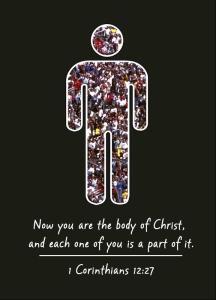
In addition, this now ex-preist was not satisfied denying the physical world, he proceeded to deny Jesus himself. As St. Joan of Arc proclaimed, “About Jesus Christ and the Church I simply know they’re just one thing, and we shouldn’t complicate the matter.” To continue to give homilies and say Mass was to deny the authority of Jesus Christ as expressed through his body, the Church; which took away those privileges in the laicisation process. The willful denial of Jesus Christ is a very grave matter, because it cuts to the quick of Christianity. Why masquerade as a Christian if one denies Christ? The Church codified this rejection of Jesus in an excommunication, so he might more clearly see where his actions were taking him.

St. Mary MacKillop, pray for us.
Far from being excommunicated like St. Mary MacKillop, for false allegations of alcohol abuse; This man was excommunicated for something he admits is true: denying the Church. His disdain for the Body of Christ oozes through when he says, “In times past excommunication was a huge thing, but today the hierarchy have lost such trust and respect”. I could understand a non-Catholic or badly formed Catholic thinking such things, but someone with his education should understand how big a deal it is to be cut off from the Jesus Christ himself. It goes to show how far he has fallen theologically, and it is quite tragic that even the dramatic step of excommunication cannot reawaken his understanding. It is a pitiable man who leans so firmly upon his own thoughts that he is no longer held up by all the hands of those before us — the continuity of believers. Such a person is bound to fall because we are designed to live in communion.
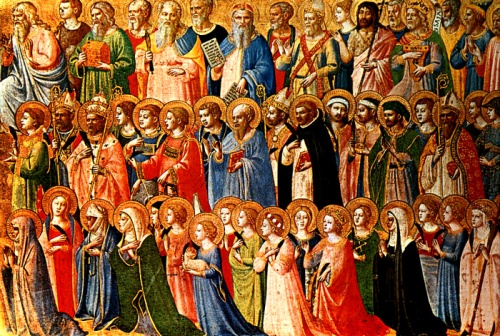
The communion of Saints who have gone before us. I want to be like them!
Dear Reader, to close, please pray for Greg Reynolds: that he might learn how wonderful our bodies (both female and male) are, and thereby return himself to Christ present on this earth in the communion of his followers.









